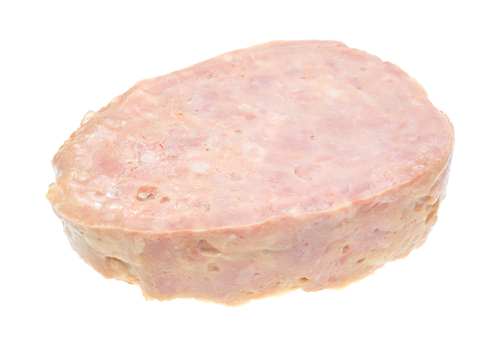Is Spam Bad For You?
Also Known As: spiced ham in a can
Short answer
Although the FDA considers it safe to consume in moderation, indulging in Spam on a regular basis can be detrimental to your health. Looking out for your future well-being, it's best to skip the spam altogether.
Recommended Alternative
Category 'F' is for things that fail to bring anything beneficial to the table, and are very harmful to your health. We recommend completely avoiding anything in this category. Long-term side effects of 'F' items are usually very serious.
View Full Grading System
Category 'A'
Very healthy and numerous health benefits. Side effects are rare. Things rated an 'A+' are typically necessary for survival (for example, water).
Very healthy and numerous health benefits. A few harmful qualities may be associated, but only under certain circumstances such as an allergic reaction.
Very healthy and numerous health benefits. Harmful qualities may be associated, but aren't usually serious.
It is important to note that even the best things in life can become bad in immoderate amounts. So, although something may be rated an 'A+', overconsumption/overdoing can bring unwanted effects.
Category 'B'
Very beneficial to your health. Things rated a 'B+' may have a few harmful qualities to pay attention to.
Overall beneficial to your health. Things rated a 'B' may have some harmful qualities to pay attention to.
More beneficial to your health than not. However, harmful qualities are most likely associated and shouldn't be overlooked.
The main difference between category 'A' and category 'B' is the harmful qualities typically present in 'B' items. Serious side effects are usually uncommon, but are still possible and should be taken note of.
Category 'C'
Both beneficial and harmful qualities associated. Things rated a 'C+' are typically a bit more on the beneficial side. Still, moderation is important.
A fairly even ratio of beneficial and harmful qualities. Moderation is important. Very general topics that can lean towards both sides of the spectrum will be placed here as well. Rice, for example, can be good or bad depending on the type.
More harmful than beneficial. Side effects are common, especially when consumed/done excessively. Moderation is very important.
Category 'C' usually denotes to both good and bad qualities. When it comes to this category, it is important to keep this word in mind: moderation.
Category 'D'
Harmful to your health. Although benefits may be associated, the bad most likely outweighs the good. Moderation is very important.
Harmful to your health. A few benefits may be associated, but the bad outweighs the good. Moderation is extremely important.
Harmful to your health. Very few, if any, benefits are present. Things in this category should be avoided as much as possible.
Category 'D' is typically for things that are more harmful than beneficial. While consuming/doing something unhealthy once in a blue moon shouldn't hurt, we definitely recommend eliminating 'D' items as a regular part of your routine/diet.
Category 'F'
Category 'F' is for things that fail to bring anything beneficial to the table, and are very harmful to your health. We recommend completely avoiding anything in this category. Long-term side effects of 'F' items are usually very serious.
Category 'N'
'N' stands for neutral. Things placed into this category are generally (a) neither good nor bad for you, or (b) lack the necessary evidence to reach any conclusions.
Long answer
Since baking a traditional ham in the oven can take several hours, many people often turn to a more convenient alternative, such as popping the top off of a can of Spam and enjoying a ham-like product within seconds. Hey, we’re not here to judge your diet habits, only to educate you regarding if something can be potentially detrimental to your health. After all, a product like Spam that has been used to feed our troops during times of war couldn't possibly be bad for you, could it?
Spam is a brand of precooked meat in a can that is processed to contain a variety of ingredients, including chemical preservatives intended to prevent bacteria growth, add color and extend shelf life. Research suggests that consuming large quantities of sodium nitrate, the ingredient used to preserve Spam and many other processed meats such as jerky, bacon, and lunchmeat, might actually increase the risk of developing cancer. According to some nutrition experts, sodium nitrate can even escalate the risk of heart disease, inhibit oxygen transportation throughout the body, promote type 1 diabetes in children, and damage the blood vessels.
Further, a single serving of Spam is laden with saturated fat, sodium, and cholesterol - all of which are linked to their own concerning side effects such as increased blood pressure, increased risk of heart attack, inflammation, and weight gain. Specifically speaking, high amounts of sodium (790mg in one serving of Spam) has a host of short-term side effects including water retention, stomach cramps, edema, swelling, and dizziness!
To summarize our findings, there are definitely healthier diet alternatives to eating processed meat like Spam. It is best to avoid Spam entirely (children and pregnant women especially).
Possible short-term side effects
- abdominal pain
-
nausea / vomiting
-
water retention / dehydration
-
swelling
-
edema
-
dizziness
-
stomach cramps
Possible long-term side effects
- inflammation
-
weight gain
-
increased cholesterol
-
increased blood pressure
-
heart disease
-
cancer
-
diabetes (children)
-
damaged blood vessels
-
decreased oxygen flow in body
Ingredients to be aware of
Benefits
Healthier alternatives
- non processed meats
-
natural, grass-fed meats
Our Wellness Pick
(what is this?)
Wild Planet Organic Chicken
- Free-range chicken
- Non-GMO
- Gluten-free
- Keto & Paleo friendly
- No added water
Learn More!
Please turn your Ad Blocker off to see this content. Thank you!
Thank you for your feedback!
Written by Healthy Living 35
Published on: 12-28-2015
Last updated: 12-15-2023
Thank you for your feedback!
Written by Healthy Living 35
Published on: 12-28-2015
Last updated: 12-15-2023

 Approved by
Approved by 















